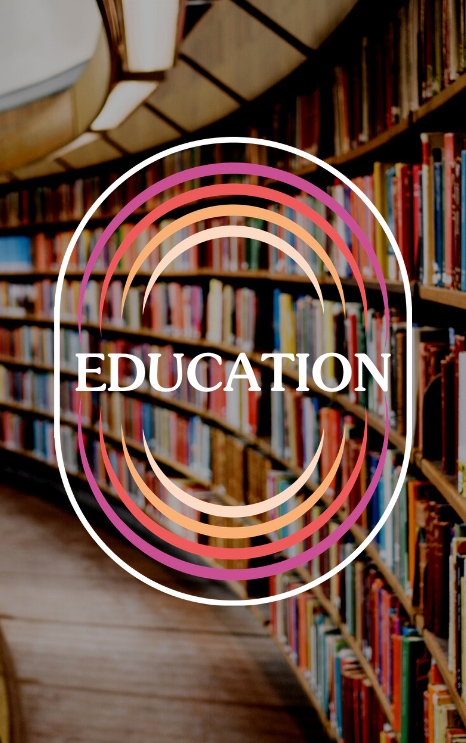In the context of the Bahá’í teachings, education is not merely the acquisition of knowledge; it is a transformative process that cultivates the capacities of individuals, enabling them to contribute meaningfully to society. The narrative of Bruktawit Tigabu is emblematic of this ethos, as it exemplifies the confluence of personal commitment, community service, and innovative educational methodologies. This article will explore the multifaceted dimensions of this narrative, examining the principles of Bahá’í education, the innovative approaches employed by Tigabu, and the far-reaching impact of her work.
At the heart of Bahá’í teachings on education lies the profound assertion that “education is essential for social progress.” This is underpinned by the belief that every individual possesses inherent nobility and that education serves as the catalyst for unlocking one’s potential. Bruktawit Tigabu embodies this principle, having recognized early in her career the necessity for an educational framework that is inclusive and adaptable to the diverse needs of children in her community.
Tigabu’s approach incorporates several key elements of Bahá’í education. Central to her methodology is the idea of fostering critical thinking skills and promoting moral and ethical development through education. Rather than focusing exclusively on rote memorization, she emphasizes the importance of engaging students in meaningful dialogues and interactive learning experiences. This holistic approach is designed to nurture not just the intellect, but also the hearts and spirits of learners, aligning seamlessly with the Bahá’í principle that education must cultivate both the mind and the character.
One of the hallmark achievements of Bruktawit Tigabu is the creation of an innovative educational platform, which combines traditional teaching practices with modern technology. Her initiative, known as “Tsehay,” leverages multimedia resources to engage children in the learning process. By using animated storytelling and interactive lessons, Tigabu has effectively captured the imagination of children, making education more accessible and enjoyable. This integration of technology into education reflects a contemporary understanding of pedagogy, where engagement and interactive learning can significantly enhance the educational experience.
The Tsehay initiative does not merely focus on cognitive development; it also instills values of cooperation, empathy, and respect for diversity among its participants. This aligns with another core tenet of Bahá’í education—the promotion of unity in diversity. By exposing children to various cultures and perspectives through stories and collaborative projects, Tigabu encourages a sense of global citizenship. In doing so, she prepares her students to thrive in an increasingly interconnected world, where understanding and appreciation of cultural differences will be paramount.
Moreover, Bruktawit Tigabu’s work extends beyond the classroom. Understanding that education’s impact is magnified when it engages the broader community, she has initiated programs aimed at empowering parents and community leaders. Workshops that involve parents in the educational process not only help to reinforce the learning that takes place in the classroom but also build a stronger community fabric. This community-oriented approach is reflective of the Bahá’í ideal that education must be a collaborative endeavor that benefits all members of society.
Furthermore, Tigabu emphasizes inclusivity in her educational initiatives. She endeavors to reach marginalized groups, recognizing that educational disparities often reflect broader societal inequalities. By tailoring her programs to accommodate children with diverse needs, she demonstrates a commitment to ensuring equitable access to quality education for all. This commitment is inherent in the Bahá’í belief that “the establishment of universal education is one of the fundamental prerequisites for the advancement of society.”
The overarching impact of Bruktawit Tigabu’s educational initiatives has been profound. Not only has she transformed the learning landscape for countless children, but she has also inspired a new generation of educators who are committed to employing innovative and compassionate teaching methods. Her dedication to the principles of Bahá’í education has reverberated throughout the communities in which she operates, fostering a culture of learning that prioritizes the development of both the mind and the spirit.
In addition to the immediate educational outcomes, Tigabu’s story highlights the powerful ripple effects that a commitment to education can engender within a community. By empowering individuals through education, she has catalyzed social change, laying the foundation for a future where educated citizens actively contribute to societal development. This is perhaps the most compelling culmination of her efforts—an enduring impact that echoes the Bahá’í vision of a harmonious and just society.
Moreover, Tigabu’s journey serves as a microcosm of the broader Bahá’í commitment to the advancement of education as a transformative force for good in the world. Her work exemplifies how individuals, when guided by noble intentions and equipped with the necessary resources, can enact change and uplift entire communities. In this sense, Bruktawit Tigabu not only exemplifies the next level of education but also illuminates the pathway toward a more equitable and enlightened world.
In conclusion, the narrative of Bruktawit Tigabu underscores the integral role of education within the framework of Bahá’í teachings. Through her innovative methods, inclusive approach, and commitment to community engagement, she has not only advanced educational standards but has also fostered a spirit of collaboration and unity among diverse stakeholders. The legacy of her work continues to inspire those who seek to elevate the status of education and promote the inherent potential within every individual.
